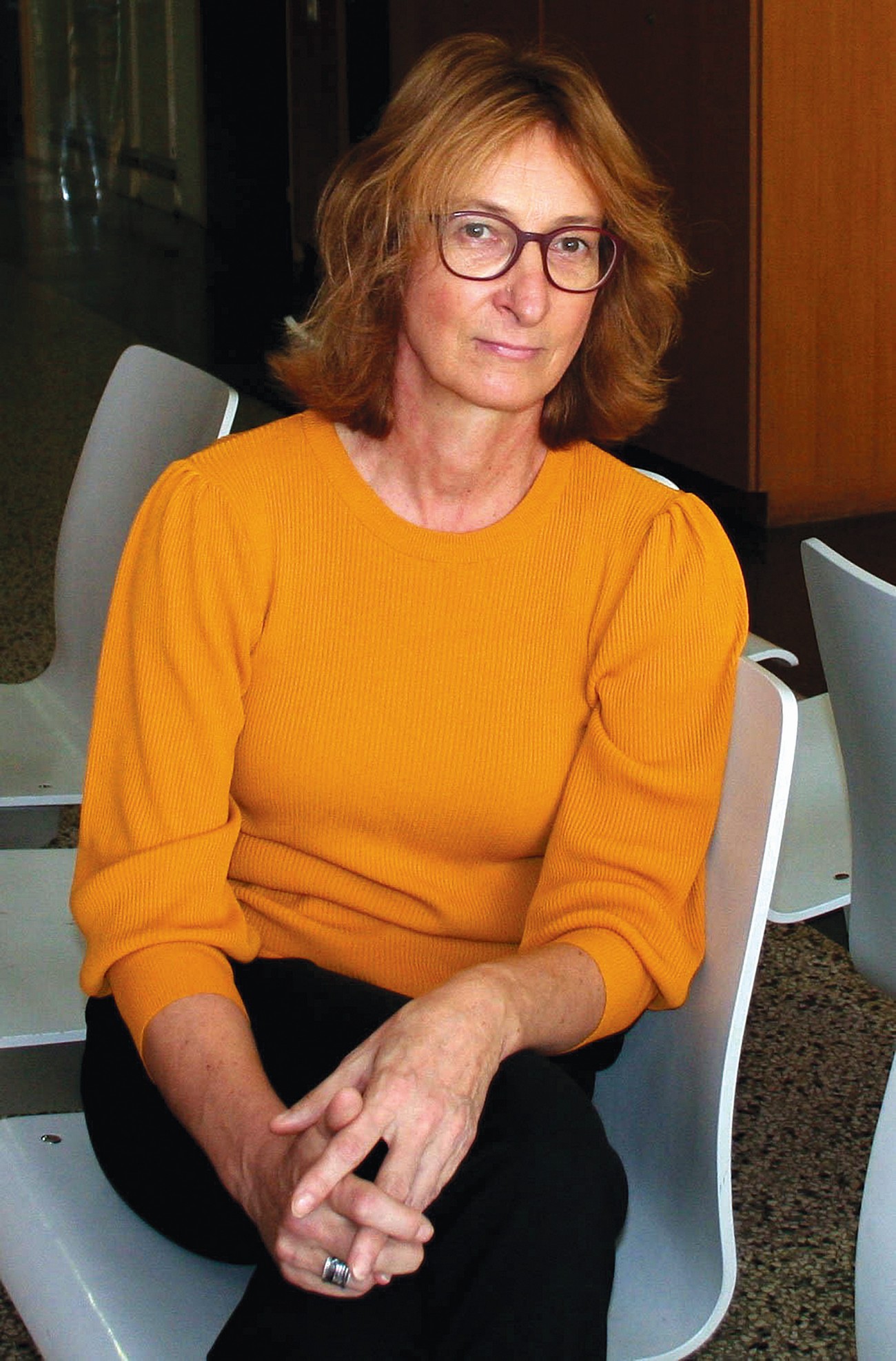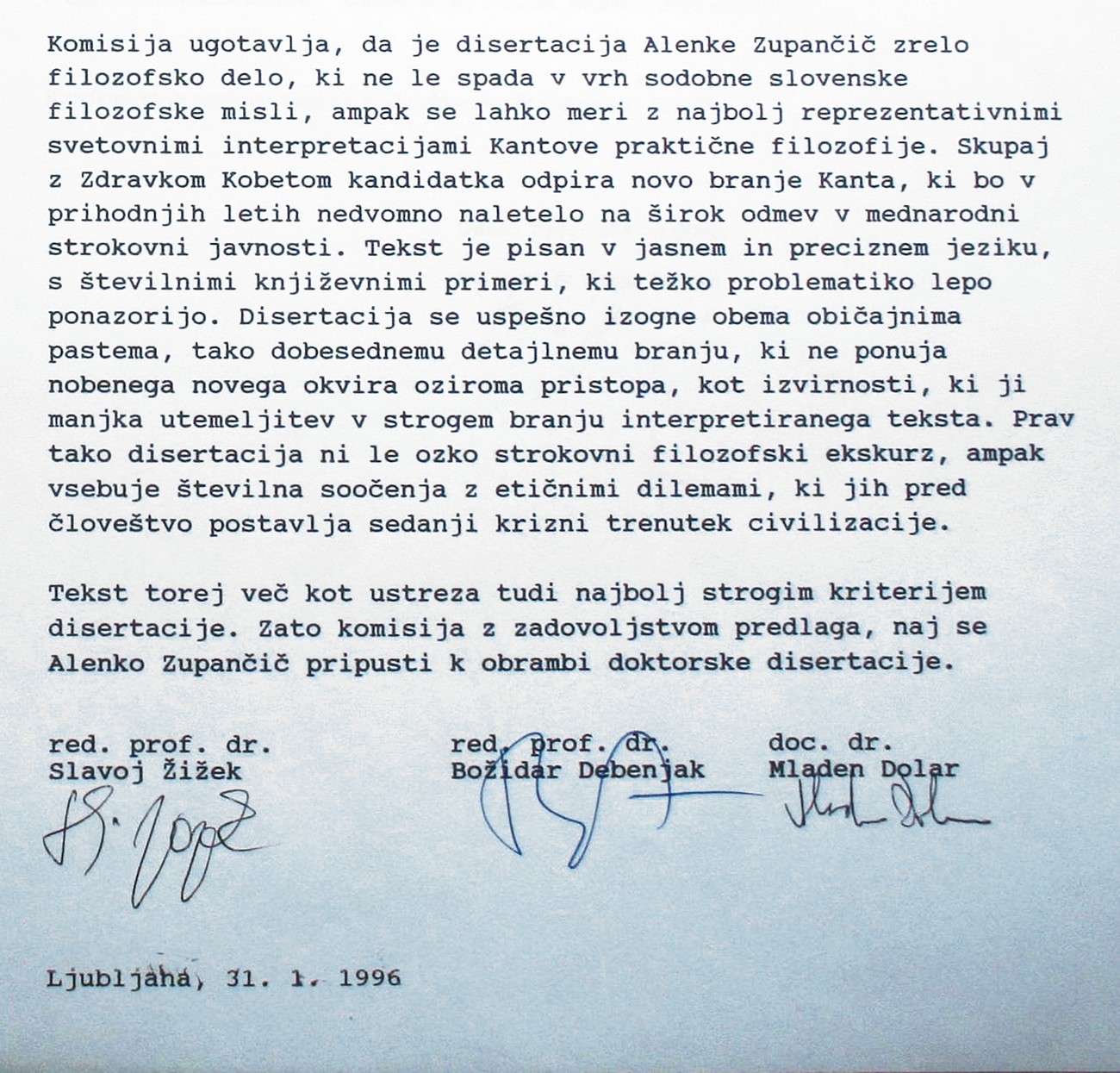
The Philosophical Trinity: ALENKA ZUPANČIČ ŽERDIN, philosopher (1996)
Action and law, the subconscious and the concept.
Mentor: Slavoj Žižek. Promotion: October 8, 1996
She got her first Ph.D. under dr. Slavoj Žižek at the Faculty of Arts, and another one at the University of Paris VIII under Alain Badiou. She is employed at the Institute of Philosophy ZRC SAZU and she is an excellent expert on Nietzsche, Kant, Hegel, and Lacan. Her research topics include ethics, literature, comedy, and love.

ALENKA ZUPANČIČ ŽERDIN

The conclusion of the joint evaluation of the doctoral dissertation by Alenka Zupančič, written by the committee composed of Slavoj Žižek, Božidar Debenjak, and Mladen Dolar.
Mladen Dolar, philosopher:
Alenka Zupančič was my student in the first half of the 1980s. She was one of the best students I have had in my entire career and she became my good associate and close friend. Alenka wrote her Ph.D. in 1995 on the topic of the Lacanian analysis of the interpretation of the Kantian categorical imperative and Kant's ethical position in general. Kant published his book Critique of the Practical Mind in 1787, two years before the French Revolution. The Kantian break in ethic therefore practically coincides with the political fracture of the French Revolution. It is thus necessary to constantly return to this break in the ethical thought. The point of Alenka's doctorate was that it was psychoanalytic Lacanian thought itself that could re-enlighten the radicality of the Kantian break and the thought from there. Lacan himself had a seminar called The Ethics of Psychoanalysis, meaning he exposed a certain fundamental ethical stance that is implied by the discovery of psychoanalysis. That ethical stance is impossible without returning back to the modern-day break of Kantian ethics. Her Ph.D. was published in a book form: it was called Etika realnega in Slovene, while the English version Ethics of the Real saw immense success and is still being reprinted.
My Ph.D. mentor was Slavoj Žižek. I exposed a certain dimension of Kant's ethics that I found extremely interesting and radical. Kant revolutionized ethics by inverting the relationship between the law and the good. The Good is subordinate to the Law. Previously, the relationship was seen differently. The Law was based solely on the pure form of the universal, without any substantive stipulation. I put that starting point in the perspective that Jacques Lacan opened to me at the time. I framed it to what he said about the relationship between the Subject, Law, Good, Desire, and so on. That enabled me to guide Kant's fundamentals, which I consistently followed, in a direction that was then new, non-existent and unorthodox in Kant's literature. I defended my Ph.D. in the extended and indepth French version before Professor Alain Badiou in Paris. The book Ethics of the Real was based on that version. Two books based on the Ph.D. were published, one in French, and one in German at Suhrkamp Verlag. The most comprehensive version is in the book Ethics of the Real, which has been translated into numerous languages, including Italian, Russian, Japanese, Persian, Turkish and others.